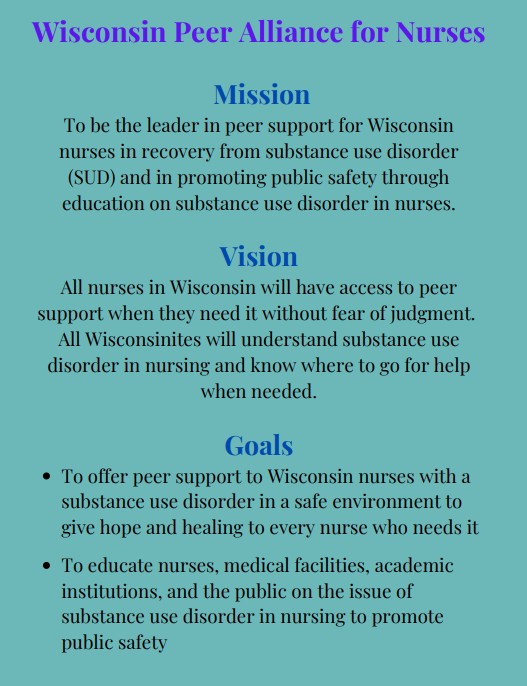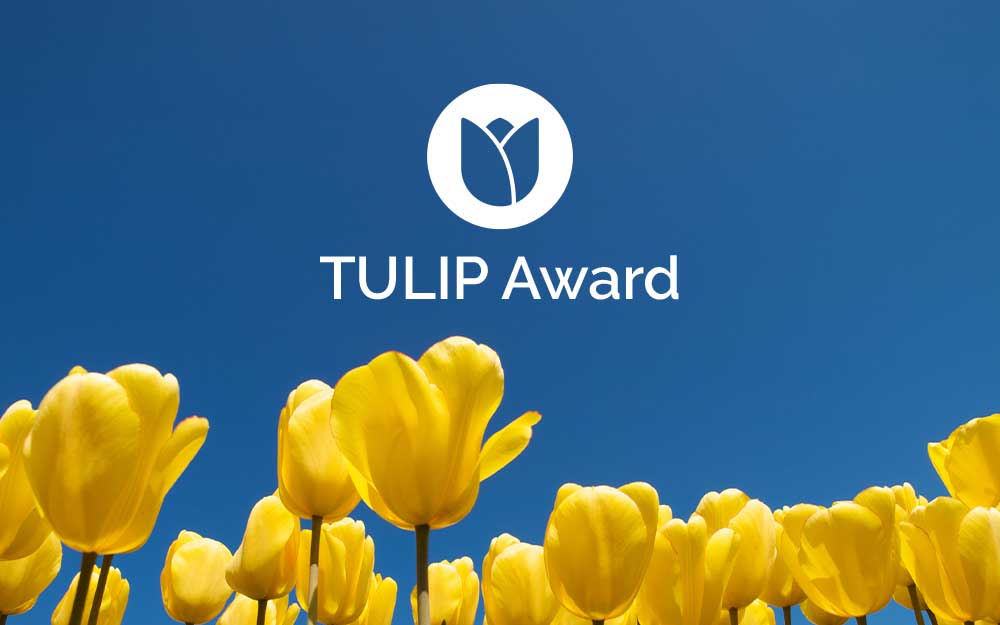
Rogers nurse launches nonprofit to support colleagues in substance use recovery
02/24/22 02:45:pmIt was 17 years ago last month when Kristin Waite-Labott, a pool nurse in West Allis, says her world fell apart.

Kristin’s addiction battle started with alcohol when she was in college. She says she drank more than her peers and made bad decisions when drinking. After graduating, she reserved her drinking for the occasional free evening after her daughter was in bed. A drug that was prescribed post-surgery in 1997, however, created a new challenge.
“I was prescribed Percocet, and I found that I really liked how it made me feel,” Kristin says. “I suffered from anxiety and depression most of my adult life and probably during my teenage years, but I never really acknowledged it.
"At times when things were bad, I would see a counselor and take antidepressants, but then once things got better, I would stop seeing the counselor and decide I didn’t need the medicine anymore. Then things would get bad again.”
Over the next couple of years, Kristin says she would go to her doctor and exaggerate symptoms to get pills. Then one day in a hospital emergency room where she was working, she noticed they threw away “a lot of drugs” and she put one in her pocket.
“After that, any time I had what we called waste medication, I would take it home,” Kristin says. “It didn’t matter what it was. I preferred opioids, morphine, Demerol, that kind of stuff. As the disease of addiction progressed, I ended up stealing from hospital stock after I tried fentanyl for the first time. It’s very addictive, and once I took it, I sought out more medication and started stealing it. It didn’t take hospital management long to figure out what I was doing.”
Two years after losing her job, Kristin found the courage in 2007 to petition the Wisconsin Board of Nursing for reinstatement of her license. She was granted a restricted license that enabled her to return to practice, and she went on to complete a five-year monitoring program, which included frequent and random urine drug screenings, group and individual therapy, and support group meetings. She received her full nursing license without restriction in 2012.
After working in dialysis and research roles, Kristin joined Rogers in 2017 as a charge nurse in Child and Adolescent Inpatient Care in West Allis. She went on to become a clinical nurse educator and is now a pool nurse in West Allis.

Launched in September 2021, WisPAN offers one-on-one mentoring, advocacy, and education to academic institutions, hospitals, and clinics. It also hosts weekly peer support meetings over Zoom facilitated by nurses in recovery who serve as role models.
The group is open to nurses outside of Wisconsin and currently includes a nurse from Los Angeles and one from Indiana. All meetings are confidential, anonymous, and free.
WisPAN recently launched a website, which was sponsored by Rogers and can be found at www.wipeeralliance.org.
“Going through the nursing board monitoring program is stressful emotionally and financially,” says Kristin. “Talking with someone who has gone through it before, understands how it feels, and has successfully completed it can be very powerful. It helps nurses know they are not alone and gives them hope they can succeed.”

“Just in the state of Wisconsin, 400 nurses are in the state monitoring program,” says Kristin. “We know from those statistics there are many more who are not receiving the help they need.”
Kristin hopes to be a force for hope and change and has met with the Wisconsin Board of Nursing to talk about WisPAN and its goal of referring nurses who are struggling.
She also continues to find ways to share her message. With the encouragement of her therapist, she published a book in 2015 called An Unlikely Addict, and she is on the planning committee for WISE quarterly meetings this year.
She told her story to attendees during WISE’s first coalition meeting on February 15. That meeting and all others this year focus on the intersection of mental health and addiction stigma.
“Had I not gone through all that I did, I wouldn’t be where I am today. I am grateful I found recovery,” says Kristin. “If we come together and talk openly about the struggles we’ve had, maybe others will see that people who have a substance use disorder do recover and they can get their lives back.”
If you’re a nurse struggling with substance use and seeking help, Kristin encourages you to reach out by e-mail at Wispan2021@gmail.com or by phone at 414-376-7002. Please download a flyer or brochure for more details.





